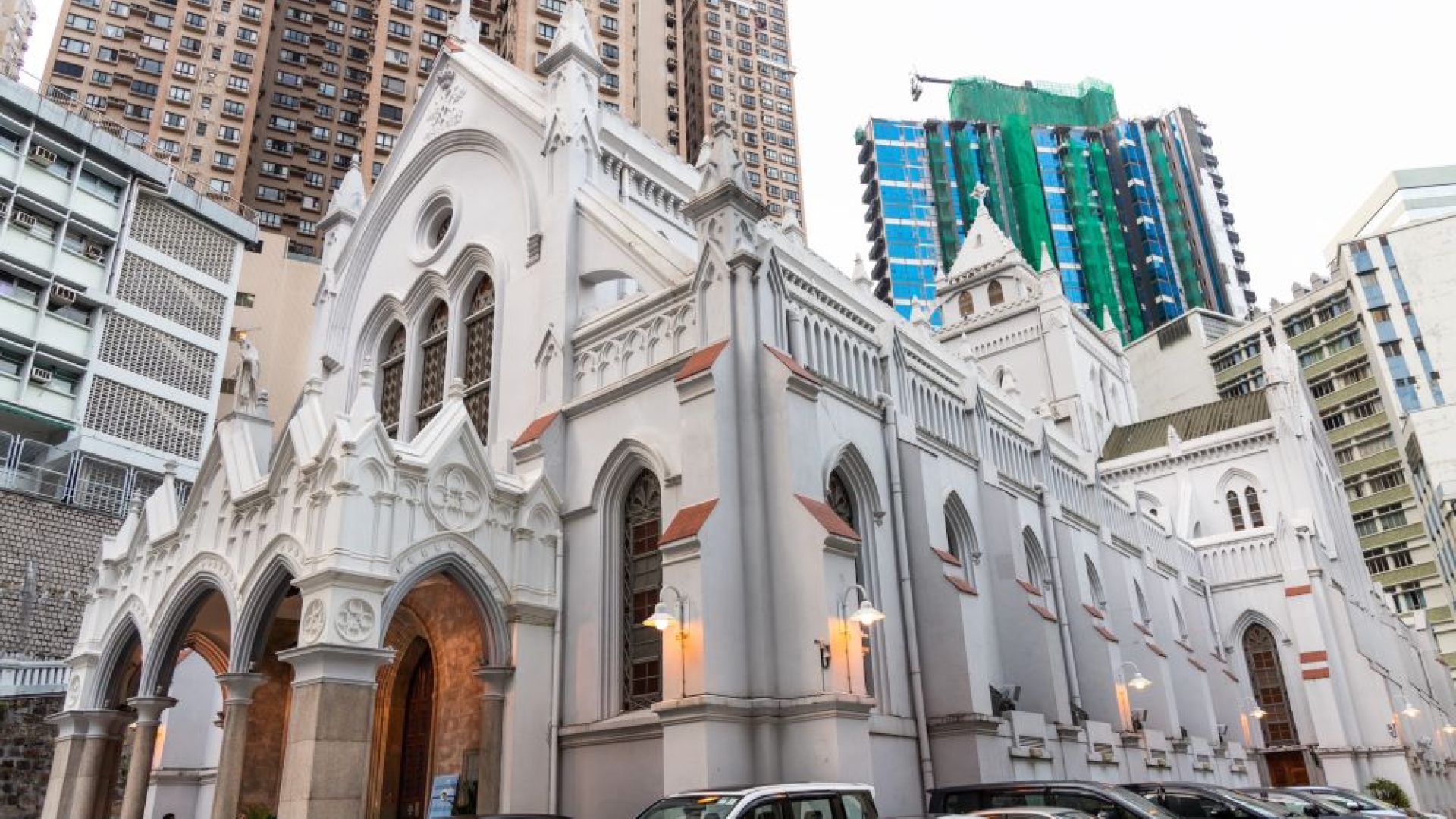Hong Kong: The Freedom of the Church in Danger

Cathedral of the Immaculate Conception in Hong Kong
The Hong Kong executive in the hands of Beijing is considering toughening the national security law instablished in 2022. The Catholic Church could be on the front lines among the organizations targeted by this umpteenth turn of the screw which promises a difficult future for religion at the port of perfumes.
Frances Hui is a Chinese Catholic journalist born in Hong Kong who obtained political asylum in the United States, from where she coordinates activities for the Committee for Freedom in Hong Kong Foundation.
Traveling companion of the former press magnate Jimmy Lai--another imprisoned Catholic, founder of the newspaper Apple Daily, tried today by the Communist power for endangering State security--Frances Hui was invited, on February 13, 2024, by the Hudson Institute to participate in a conference on the theme “The Repression of Hong Kong and Heroism of Jimmy Lai.”
The journalist intervened to raise American awareness on a project to strengthen the national security law promulgated in Hong Kong in 2020 at the request of Beijing.
According to her, the modification of Article 23 of the national security law would have the effect of putting foreign organizations, especially religious ones, which work in the former British concession on the chopping block: “A lot of the small- to medium-scale church groups, the Catholic Church, and foreign missionaries would all be affected,” the journalist explains.
In such a scenario, it is anticipated that “The Catholic Church in Hong Kong … might have to stop their communication with the Vatican because it’s a foreign state.” Consequently, the clergy of Hong Kong--as it is already happening on the mainland--would be compelled by force to join the Catholic Patriotic Association, created in 1957 in order to exercise total control over the faithful and religious ministers.
In fact, the project is not new and had already been proposed in 2002, provoking a general outcry relayed by journalists’ associations as well as many Western governments who were concerned by a possible totalitarian drift.
Twenty years later, China has acquired such political and economic weight on the forefront of the international stage that nobody or almost nobody opposes the toughening of the interal security law proposed by John Lee Ka-Chiu, Hong Kong Chief Executive--in other words, the man appointed by Xi Jinping to evacuate the air of freedom that we breathe a little too much for Beijing’s taste, in the port of perfumes.
“I think this is something the world and the American government should pay attention to and [should] speak up against it,” Frances Hui believes; “The biggest goal of [the national security law] is to stifle dissidents [...] It’s a very vaguely written law that pretty much applies to the whole civil society.”
For William McGurn, member of the editorial board of the Wall Street Journal and Jimmy Lai’s godfather--and someone who participated at the conference organized by the Hudson Institute--the Chinese press magnate preferred to remain in Hong Kong despite the imprisonment which awaited him, for the sake of “the other people locked up that don’t have his name recognition or friendliness with Western reporters and politicians.” He continued, “I think … he stayed in Hong Kong to be with them to choose sides.” He pointed out another who was imprisoned: “Same with Cardinal [Joseph] Zen.”
(Source : CNA – FSSPX.Actualités)
Illustration : Photo 138924233 © Keechuan | Dreamstime.com





